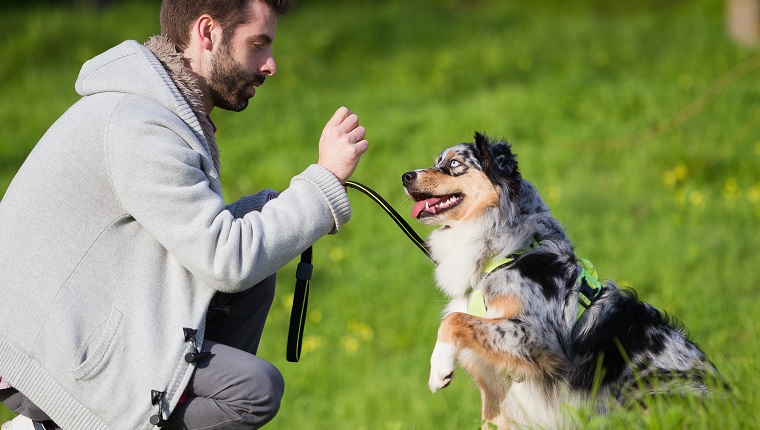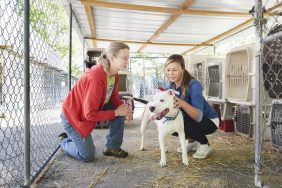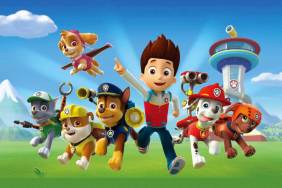If you go to the dog park, you’ll see a wide variety of human and dog interactions and parenting styles.
Some people are more attentive. Meanwhile, others sit in the shade, talking on the phone or reading a book, barely paying attention to their dogs.
Which type of pet parent are you, and what does it say about you? Here are a few of the most common dog parenting styles that might describe yours.
The Helicopter Dog Parent
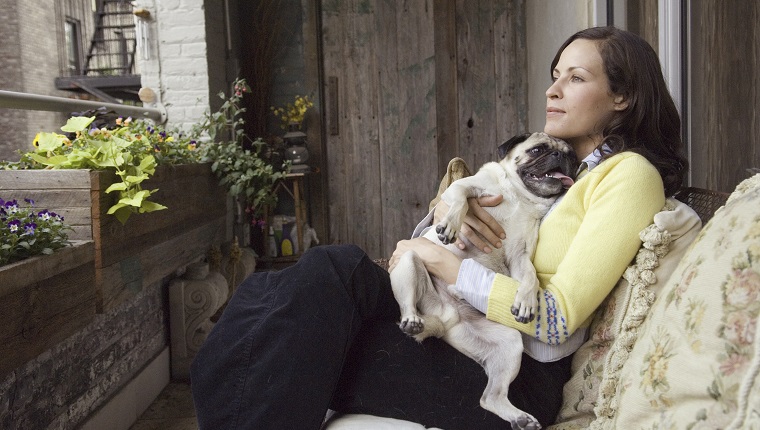
Helicopter parenting may not be the best strategy for raising kids, but research from UC Berkeley says that a healthy measure of clingy-ness and over-protectiveness could actually be advantageous when rearing a dog.
People who showed the highest levels of dependence on their pets also often express the greatest affection for them. Dogs require lifelong parenting, and they certainly get it from helicopter parents.
If you’re a helicopter parent, you probably buy only the best for your canine companion: no generic dog food — you may even cook for your dog — plus plenty of vitamins, supplements, and nutrition-based treats.
Helicopter parents dress dogs for weather conditions, pulling out warm sweaters for cold days. You might take a day off from work if your dog isn’t feeling well, or limit your own vacation time to avoid being away from your dog too long.
You may even use a webcam or pet monitor to keep an eye on your dog when you’re away, or you may take videos and pictures to capture every moment of your life together.
If you have this kind of time on your hands, odds are you don’t have human kids to take care of. But who needs them?
The Authoritarian Dog Parent
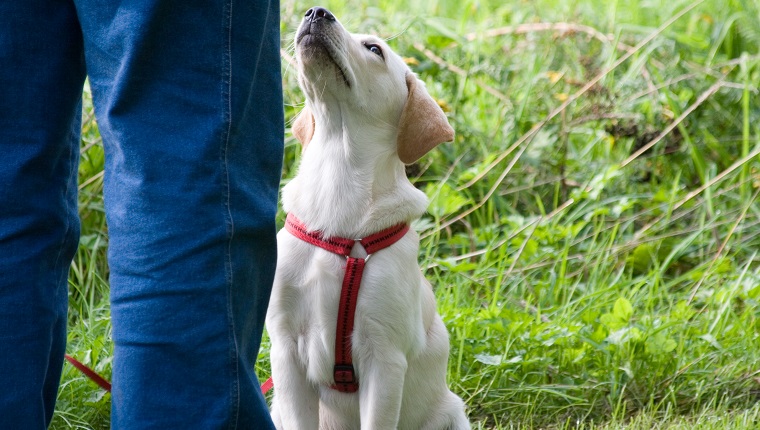
The authoritarian parent has strict rules, and rules are not meant to be broken.
Dogs with authoritarian parents are usually treated as pets, and not members of the human family. These dogs probably don’t have the full run of the house and may be relegated to designated areas or rooms.
These pets are not being abused, and yet they are not being spoiled. Nobody is sneaking them an extra treat, and mealtimes mean they get a prescribed amount of food at a specific time and in a specific place.
Authoritarian pet parents are generally very responsible about feeding, grooming, sheltering, and exercising their canine companions.
If you are this kind of parent, you may want to consider relaxing the rules sometimes. A few spontaneous snuggles and little play time with your dog — who loves you regardless — is a joyful experience that everyone should have sometimes.
The Permissive Dog Parent
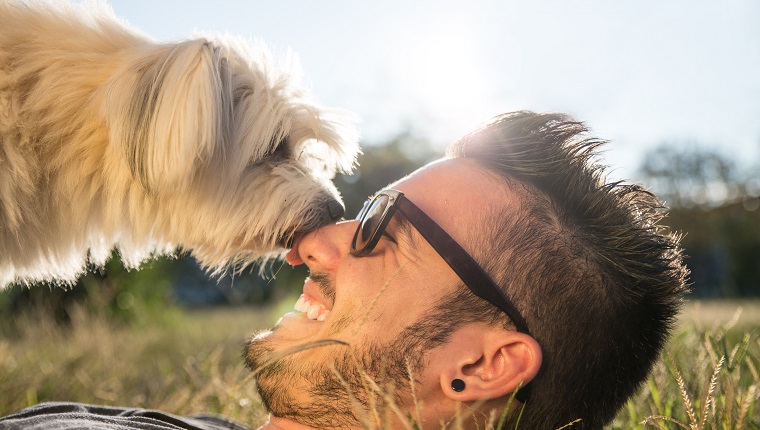
Permissive pet parents, like permissive human parents, frequently have dogs who could be considered spoiled. Their dogs have no rules and very little, if any, training. These dogs cheerfully ignore the commands of all humans and do whatever they want.
They may snatch food off the table or out of the hands of a passing child, they are usually bad at walking on leash, they may push other dogs around, they may relieve themselves inside — because there are no repercussions and they just don’t know better — and they are not the best of house guests.
Permissive pet parents love their dogs, but don’t necessarily feel the need to enforce rules, reward good behavior in a healthy way, or reprimand bad behavior.
If you’re an overly permissive pet parent, it’s important to realize that your dog might actually be happier and feel more protected if you were consistently clear about what kind of behavior will or will not be tolerated and set some reasonable boundaries.
Rewarding good behavior is something every dog can understand and every pet parent enjoys.
The Worrywart Dog Parent
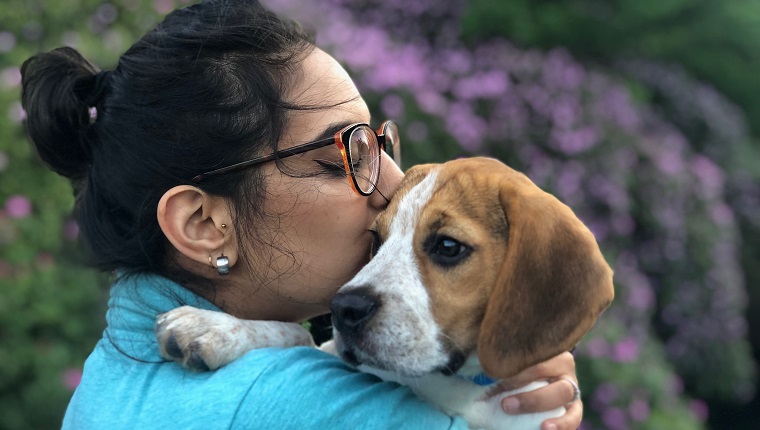
This pet parent is usually a bit of a hypochondriac. Any time their dog frowns, they think something is horribly wrong.
It’s important to take good care of your pet, but this kind of alarmist behavior borders on neurotic. The worrywart often tempts the dog with special treats when they seem down or off, using anything from ice cream to fried chicken to make their dog “happy.”
Dogs catch on to this backwards reward system quickly. They know that a pleading look, a frown, or a sigh are the things that set the worrywart into treat mode, and the dogs respond accordingly — because hey, who doesn’t like treats?
With all those treats, a dog can reach an unhealthy weight and start acting sluggish, which is now a genuine reason for concern and more treats.
It’s important to know that dogs, like humans, have many emotions. You’re not a bad parent just because your dog isn’t wagging their tail every minute of the day. Give your dog a little personal space and let them have their feelings.
A gentle stroke or a little cuddle time are the best medicines — not treats.
The Family Ties Dog Parent
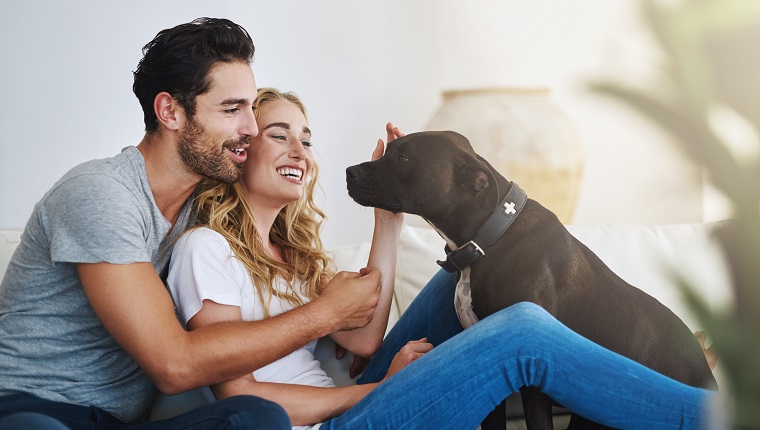
The family ties pet parent will go above and beyond the call of duty for their canine family members just like they would for their human family members. Their dogs have fully integrated into family pack.
This pet parent wouldn’t hesitate to spend top dollar on anything their dog needs — from healthcare to grooming, and everything in between.
If you’re this type of pet parent, you love to pamper your dog, but also respect that your dog is a dog and has special dog needs. You enjoy the unique interaction and affection that only a dog can add to your life.
Lucky dogs with this type of pet parent are generally well balanced and behaved. They get plenty of love and attention, have mostly free range of the house, join humans in daily activities, and respect their humans and the boundaries they set.
If you’re a family ties type of pet parent, then you’ve mastered the balance between having rules and setting boundaries, and enjoying those spontaneous bursts of love and fun that all dogs and humans crave.
Regardless of our dog parenting styles, it’s important to have balance in your life and your pooch’s life. Do your research before bringing a new furry family member into your home.
What kind of pet parent are you? Which style do you like best? Let us know in the comments below!
